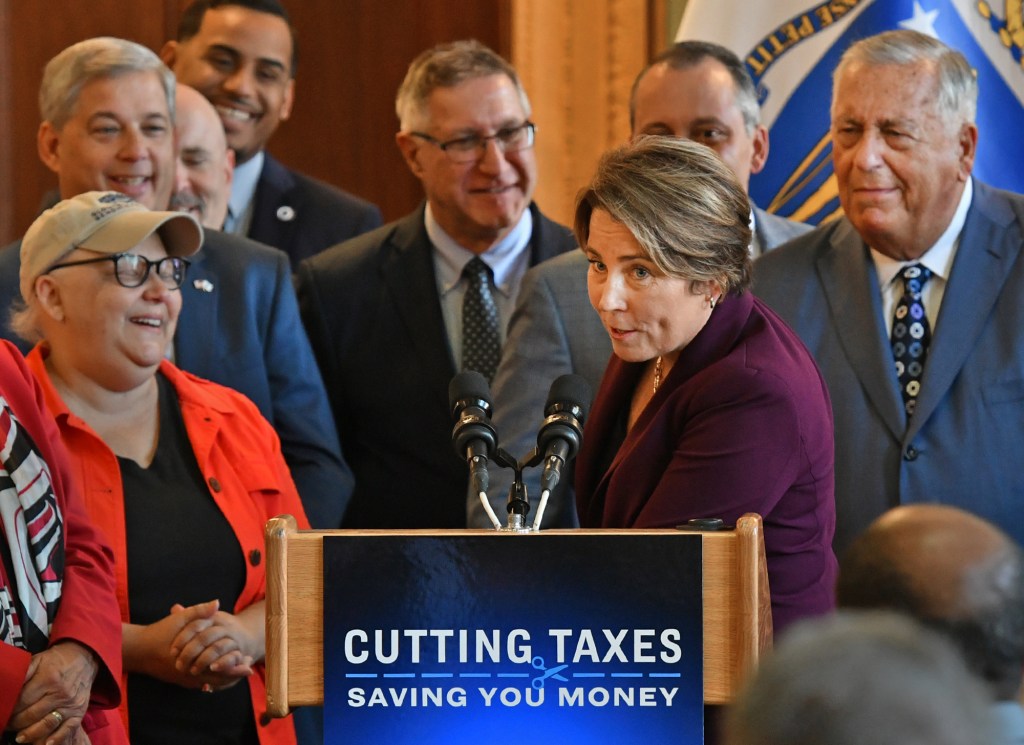Negotiators reached a deal two weeks ago that cuts the short-term capital gains tax from 12% to 8.5%, a business-backed move that has riled progressives who argue it gives a break to the wealthy. The compromise will cost the state $561 million in fiscal year 2023 and $1 billion a year starting in fiscal year 2027.
The bill also excludes estates valued up to $2 million from the estate tax by allowing for a uniform credit of $99,600.
Sure, there is a cute $50 and $120 increase in rent and dependent child tax credit and some minor benefits for low-income and disabled people (that will often go unused), but the point of this bill is entirely about appeasing to the very rich of this state.
This is a disturbing anti-poor and anti-middle class law fervently pushed by the governor and compromised with the legislature, who thankfully made the bill slightly less anti-poor and anti-middle class than the governor wanted. But still, another dark day for Massachusetts perpetuated by our conservative governor and state legislature.


Provisions of the tax cuts package include:
Child and Family Tax Credit – Eliminates two-dependent cap and increases credit from $180 per dependent child, disabled adult, or senior to $310 for 2023 and to $440 on a permanent basis, starting in 2024. An estimated 565,000 families will benefit, and this will be the most generous universal child and dependent tax credit in the county.
Earned Income Tax Credit (EITC) – increases credit from 30% to 40% of the federal credit
Estate Tax – increases threshold from $1 million to $2 million with a credit that mitigates cliff effect
Short-Term Capital Gains – reduces rate from 12% to 8.5%Rental Deduction – increases cap from $3,000 to $4,000
Senior Circuit Breaker Tax Credit – doubles credit, indexed to inflation, which equates to an increase from $1,200 to $2,400
Single Sales Factor – shifts from three-factor apportionment system based on business’s share of sales, payroll, and property to apportionment based solely on sales
Low-Income Housing Tax Credit (LIHTC) – increases annual program cap from $40 million to $60 million
Housing Development Incentive Program (HDIP) – increases annual program cap from $10 million to $57 million in 2023, and thereafter to $30 million annually
Student Loan Repayment Assistance – exempts employer assistance for student loan repayment from taxable income
Dairy Tax Credit – increases annual program cap from $6 million to $8 million
Cider Tax Rate – applies lower tax rates to a broadened class of beverages
Lead Paint Abatement Credit – doubles credit to $3,000 for full abatement and $1,000 for partial abatement
Title V (Septic) Tax Credit – triples maximum credit to $18,000, increases percentage of eligible expenses from 40% to 60%; and allows taxpayers to claim up to $4,000 in any year, versus $1,500 in current law
Deductible Commuter Transit Benefits – adds public transit fares, RTA fares and bicycle expenses to deductible commuter expenses
Apprenticeship Tax Credit – expands eligible occupations
Municipal Affordable Housing Property Tax Exemption – permits municipalities to adopt local property tax exemption for affordable real estate
Property Tax Liability Reduction for Senior Volunteer Services – permits municipalities to increase the maximum property tax abatement available to seniors who perform volunteer services from $1,500 to $2,000
Stabilization Fund Cap – increases the cap on Stabilization Fund deposit from 15% to 25.5% of budgeted revenues